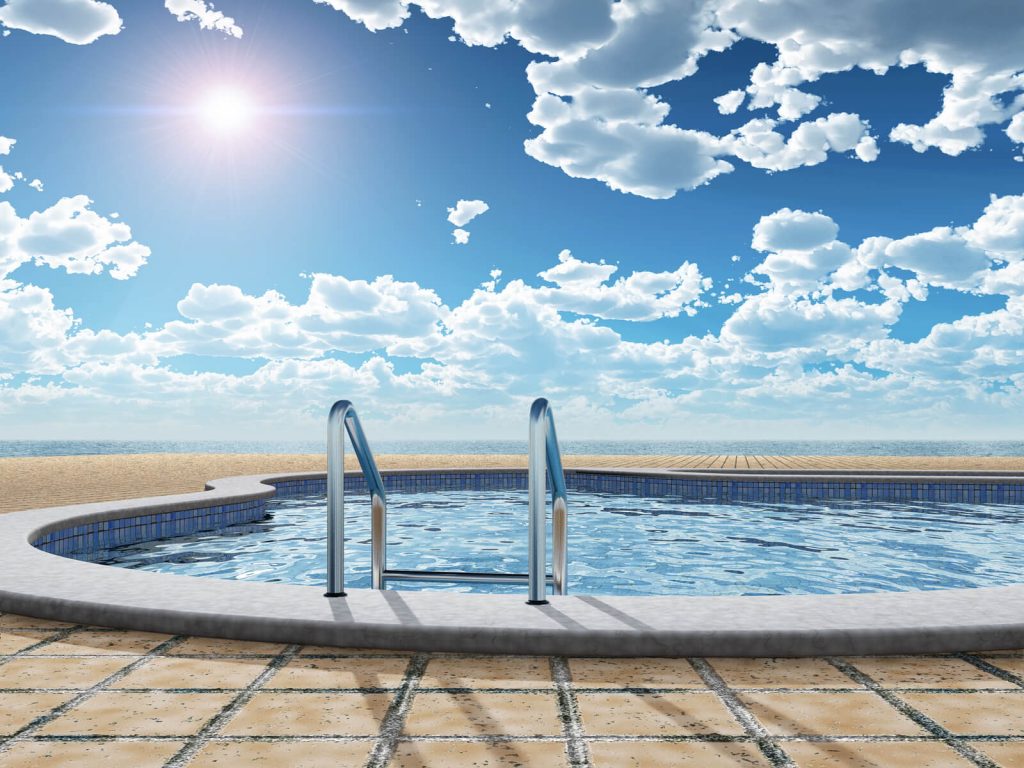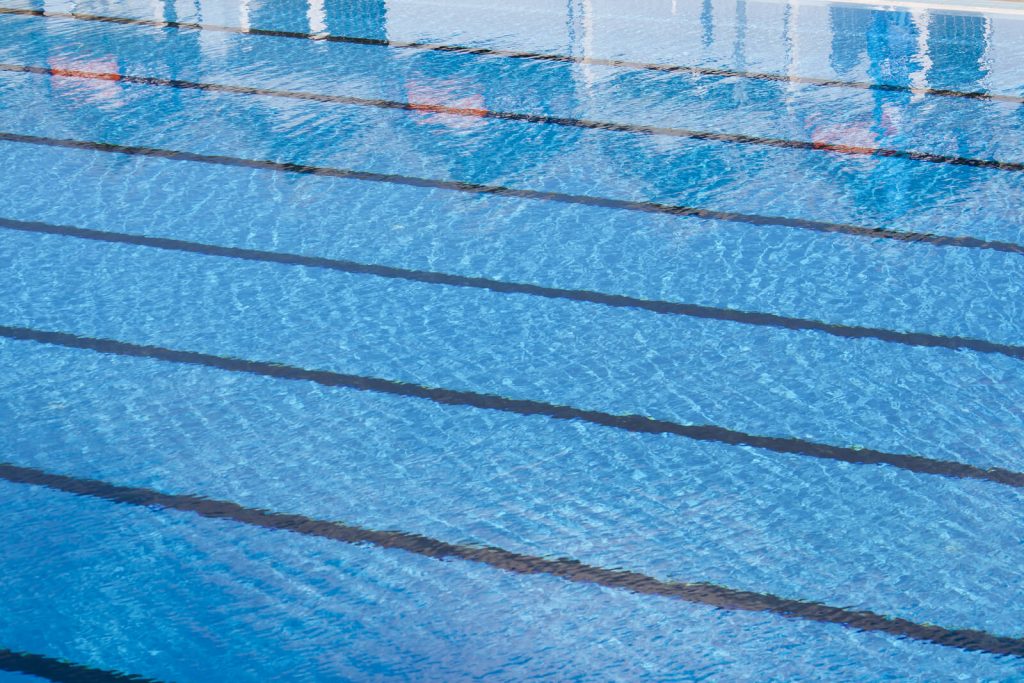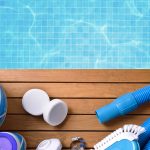Learning the Difference Between Swimming Pool Sanitizers
As a Certified Pool Operator ®, you rely on various swimming pool sanitizers to maintain a safe and sanitary swimming pool. Each sanitizer has unique features and chemical components that work to sanitize the water. It’s essential to understand the difference between these sanitizers if you work at a commercial swimming facility or own a pool.
Chlorines
The most common swimming pool sanitizers used to treat swimming pool water release chlorine (hypochlorous acid). Chlorine is very effective in killing or inactivating pathogens and algae in pool water. It also oxidizes other materials that enter the pool from swimmers or the environment. Chlorine maintains a residual concentration in the water for hours to even days.
There are two basic types of chemicals that release chlorine into swimming pools – stabilized and unstabilized chlorines. The unstabilized chlorines are sodium hypochlorite, lithium hypochlorite, calcium hypochlorite, and chlorine gas. The stabilized chlorines are trichloro-s-triazinetrione (trichlor) and dichloro-s-triazinetrione (dichlor).
Bromine
Bromine, belonging to the same chemical family as chlorine (halogen), is an effective disinfectant. It works very well facilitating water oxidation and killing algae. While chlorine is a gas, elemental bromine is a heavy, reddish-brown liquid. While elemental bromine is added directly to the pool water, there are two other variations of bromine that can be used. Sodium bromide is activated by potassium monopersulfate (an oxidizer). This ‘two-part system’ is limited to smaller pools and is not used in commercial pool operation. A second variation is a solid form of bromine bound to an organic chemical. The solid dissolves in a soaking or erosion type feeder to deliver hypobromous acid. These are used in commercial swimming facilities. Keep in mind that it cannot be stabilized so bromine should not be used at outdoor facilities
Ozone
Ozone is a gaseous molecule that is somewhat soluble in water. Because ozone does not leave a disinfectant residual, it is considered a supplemental oxidizer and disinfectant. Certified Pool Operators ® use swimming pool sanitizers like ozone to kill bacteria, viruses, and parasites. Ozone also oxidizes both inorganic and organic chloramines which can help improve air quality at indoor swimming facilities. Ozone can even regenerate the bromide ion, which creates another disinfectant in the water.
Ultraviolet
Ultraviolet light is a powerful, low-wavelength light that can be used as a non-chemical water disinfectant. Ultraviolet light does not create a disinfectant residual, so it is also considered a supplemental disinfectant and oxidizer. It kills or inactivates parasites, bacteria, and viruses and, unlike chemical disinfectants, ultraviolet light inactivates pathogens with high energy. It will cease the reproduction of pathogens by damaging its DNA. The dose of ultraviolet light is measured by the lamp’s intensity in combination with the amount of time the water has been exposed to it.
Polyhexamethylene Biguanide (PHMB)
PHMB is an organic polymeric disinfectant used to treat swimming pools and spas. It is used with hydrogen peroxide as well as a quat algaecide. It is typically used on smaller, residential pools, as not all health departments approve PHMB for commercial applications. It is not compatible with chlorine releasing chemicals, copper algaecides, and potassium monopersulfate. It is likely due to these incompatibilities that some health departments restrict use.
Learn More About Swimming Pool Sanitizers
This is only a basic overview of swimming pool sanitizers. To learn more, go to the experts at Pool Operation Management. The CPO® certification class is a great start to becoming a pool expert. Our award-winning pool operator training courses show you how to properly operate a swimming pool or spa facility. Our two-day courses offer a wealth of information and training in everything from pool chemicals to energy conservation to risk and liability. For the very best in pool operation, contact us today.








